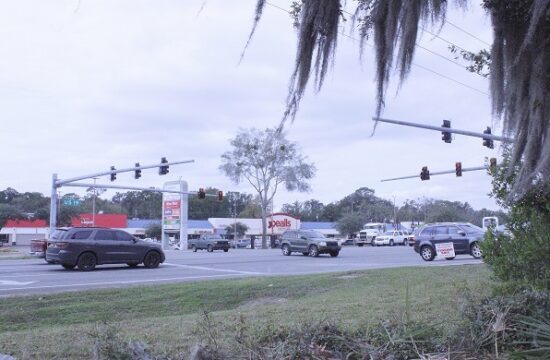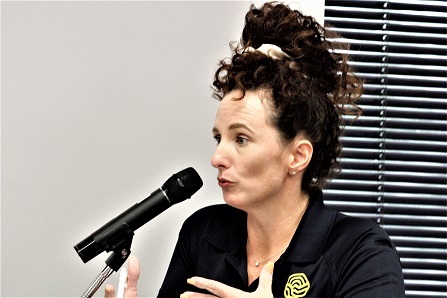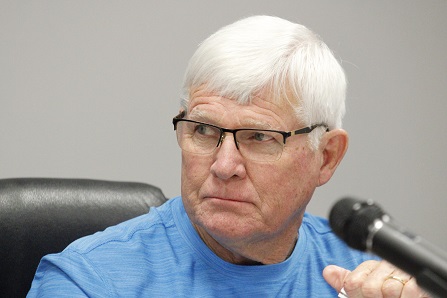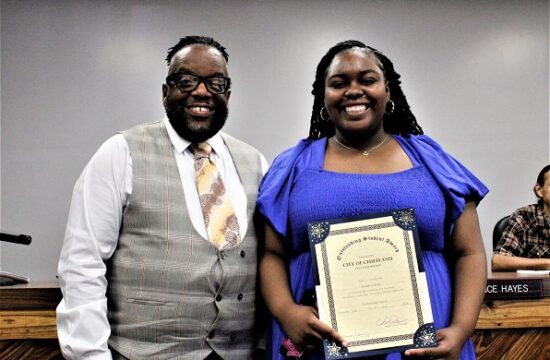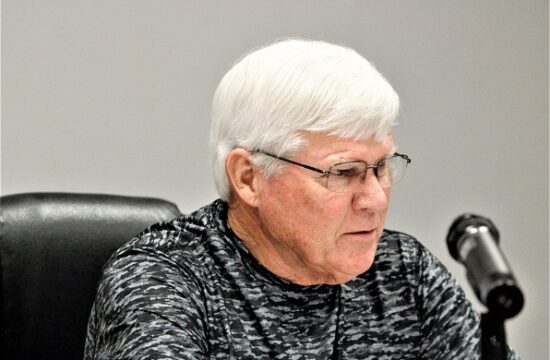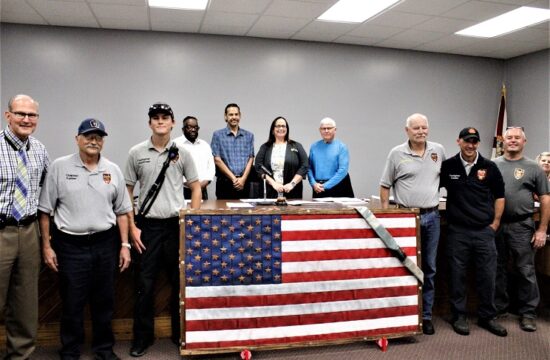By Terry Witt – Spotlight Senior Reporter
Chiefland City Commissioners Monday authorized their attorney to work with city police on finding ways to address the problem of homelessness in Chiefland.
“What I would like is if I could coordinate with police, that we coordinate our efforts to come up with a solution and present it to you on how this can be handled, hopefully within the framework we already have,” said City Attorney Norm Fugate.
In the year 2020 between January and October, city police responded to 500 calls dealing with homelessness, vagrancy, panhandling, and loitering within the city limits.
The subject of homelessness and what to do about it was first raised by Commissioner Lewrissa Johns more than a month ago after she was forced to deal with a homeless man using the front of her business as a place to live.
City Manager Laura Cain volunteered initially to research the ordinances of other communities that might have dealt with homelessness but didn’t find anything of use to the city.

She said she also looked at ordinances within Chiefland’s existing laws that dealt with vagrancy and talked to Police Chief Scott Anderson about possibly amending the city’s loitering ordinance to address homelessness.
“We decided that’s not a very good idea,” she said.
They finally settled on the idea of the police department “just reaching out and doing more drive-by’s to see if anything’s going on,” she said.
“Does that really address it?” asked a Spotlight reporter. “Are homelessness and vagrancy the same thing?”
“When you’re looking at the ordinances for vagrancy, yes,” Cain responded.
“You said the police would just do drive-bys, and reach out to the homeless people?” the reporter asked.
“If there’s a homeless person like the one that’s been at Suncoast, they’ve trespassed; they’re not to be there. We trespass them so they don’t go there again. If they’re there again, they’ll be arrested,” Cain said.
Anderson said he got pushback from Gainesville when the city adopted its ordinance addressing loitering and aggressive panhandling a couple of years ago.
“Gainesville sent people over here to push back on us about that,” he said. “What can you do? There’s really nothing out there to enforce homelessness. How do you enforce a homeless person, other than they can’t loiter or panhandle?” Anderson said.
Anderson was asked how city police approach a homeless person at a business?
“When we get a call on it, we ask them to leave the business,” Anderson said. “What can you do, you can’t violate their constitutional rights by pushing them out of town.”
Fugate said Gainesville has an ordinance that designates where the homeless can hang out. The ordinance addresses interfering with traffic flow and camping out under overpasses, things of that nature. Issues involving public property can be regulated.
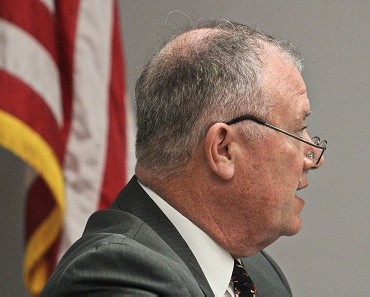
On the other hand, he said, if a person owns a piece of private property and people are trespassing and living there, the police department is going to respond to the property owner’s complaint.
“I haven’t been asked to look into it in a detailed manner, but I think that you’ll find there are criminal laws on the books especially with the thing we’re hearing about in front of a business, things like that,” he said.
Fugate said public defender employees actually came to his office to talk to him about the city’s adoption of a panhandling ordinance.
“It never went anywhere with that,” he said. “The (city’s) panhandling ordinance is still on the books. No one is saying they’re going to challenge it.”
Cain asked if the city could amend its panhandling ordinance to address homelessness and vagrancy?
“Sure, we can look at that, but I am always more prone to recommend using laws, especially at the state level, that are already on the books rather than us trying to create our own,” Fugate said.
Commissioner Lance Hayes asked how many homeless people are living in Chiefland.
“I don’t know of any. They are passing through,” said Anderson.
Commissioner Norm Weaver asked the board if they wanted to instruct Fugate to address the homeless issue and bring back recommendations on state laws the city might be able to use. The board supported that idea.
Johns said there’s no easy solution, but homelessness can’t be ignored, given the number of calls city police receive.
“As a business owner you can do a trespass and if they come back, they can be arrested and we can push that knowledge. Hey, this is what you have to do. Don’t just run them off,” she said.
Johns said someone had planned on speaking at Monday’s city commission meeting about the homelessness problem, but it concerned private property, not public property.
Johns said she doesn’t know the answers, but added, “We have to protect our citizens, our business owners.”
Hayes wondered if property could be purchased or set aside to build something for the homeless?
“If you encourage, they will come. We’ll be San Diego,” Anderson said.
—————————
City of Chiefland Regular Meeting January 10, 2022; Posted January 11, 2022




